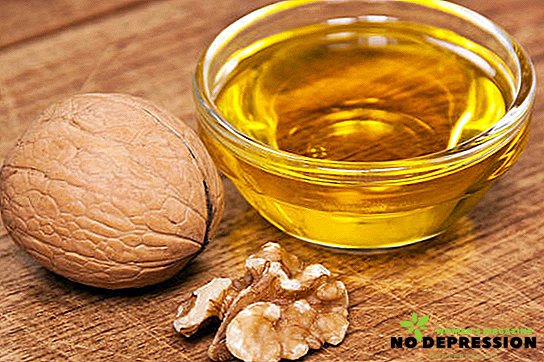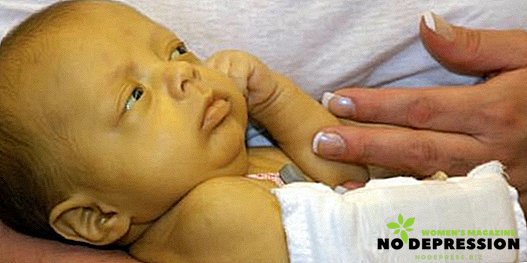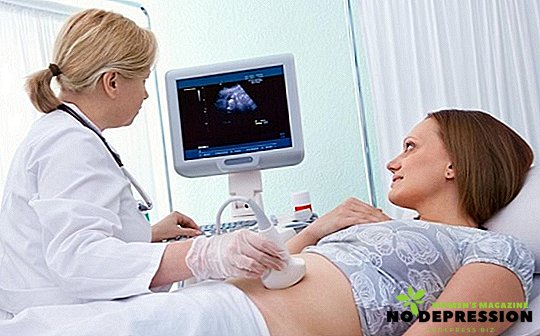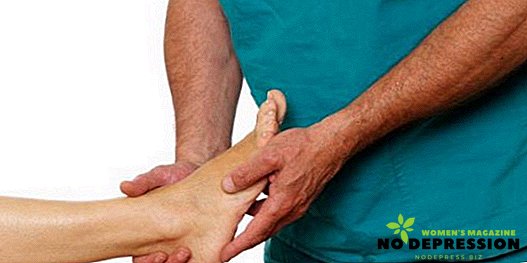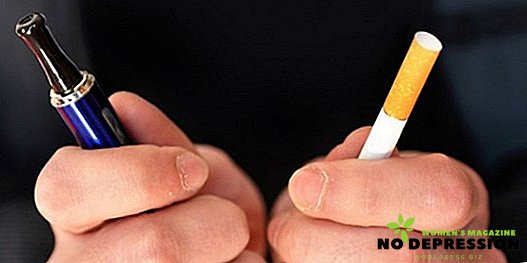Tracheitis in modern medicine refers to diseases of viral origin. True, bacteria are often the cause of the pathology. For this reason, the actual question is whether it is necessary to treat tracheitis with antibiotics if it is not caused by bacteria. It is important to remember that only a doctor can make an accurate diagnosis and prescribe treatment.

Antibiotic treatment of tracheitis
Tracheitis can be in the following forms: acute and chronic. The acute form of the disease is characterized by dry, tearing cough, rhinitis, pharyngitis and laryngitis. These inflammatory processes are the result of a viral infection. In acute tracheitis, taking antibiotics is pointless, since viruses do not have their own membrane and they are introduced into the host cells. Cough and other symptoms are treated with appropriate drugs, prescribed inhalation, etc.
However, infectious tracheitis can develop as a result of bacterial infection. According to microbiologists, bacteria can become both an independent cause of the disease, and accompany viruses. This is due to the fact that viruses suppress the body's defenses, which ultimately gives a "start" to the development of pathogenic bacteria.
In this case, antibiotics perform their main function - they inhibit the growth of pathogenic bacteria.
 Indications for use of antibiotics for tracheitis are as follows:
Indications for use of antibiotics for tracheitis are as follows:
- suspected pneumonia;
- cough duration more than 20 days;
- high temperature, which does not go astray;
- signs of inflammation of the tonsils, otitis.
Remember that timely cured acute tracheitis can turn into a chronic form. In this case, the chronic course is often associated with the anatomical features of the respiratory tract, the presence of pathological changes, and frequent temperature fluctuations.
Often chronic tracheitis occurs in smokers, people who abuse alcohol. Also, this disease accompanies those who work with chemicals whose vapors irritate the mucous membrane and cause inflammation. In addition, allergy sufferers cause allergic tracheitis dust.
In these cases, otolaryngology doctors do not prescribe treatment with antibiotics.
Which antibiotic is better for tracheitis?
If the disease is caused by bacteria, antibiotics are indispensable. When prescribing, the doctor takes into account all the parameters: the clinical picture, the patient's age, the presence of any pathologies, the spectrum of action of a certain medication, the presence of contraindications.
And the dosage of the antibiotic is determined by the severity of the inflammatory process. According to experts, the most effective option is penicillin group drugs, although there are other drugs that also have a wide spectrum of action.
For example, you can use Augmentation (other names - Amoxicillin, Amoklavin, Clavocin), which contains such components as amoxicillin and clavulanic acid. Available in the form of tablets or powder for solution and suspension.

Tablets are used according to the following scheme: 1 capsule twice a day before meals. With a severe form of the disease - three times a day. However, if you suffer from diseases of the gastrointestinal tract, infectious mononucleosis, have chronic renal failure, use the tool with caution. In pregnancy and lactation, Augmentin should be replaced with another medicine.
If the patient does not tolerate penicillin and its derivatives, medications from groups of cephalosporins or macrolides are prescribed. The most famous drug is Cephalexin (other names: Ospexin, Keflex). Possesses bactericidal action concerning a set of microorganisms. The active substances begin to "work" approximately 1.5 hours after administration, are excreted in the urine within 8 hours. The drug is available in the form of capsules, tablets and powder for suspension.

The daily dose of the drug is 1-4 g (0.25 g in the capsule), taken every 6-7 hours with a glass of water. The course of treatment is two weeks. This medication has a number of side effects:
- weakness;
- headache;
- hives;
- jaundice, etc.
There are contraindications: intolerance or allergy to cephalosporins and penicillin antibiotics, children up to 12 years of age.
Macrolides help fight cocci, including pneumococci, act on chlamydia, mycoplasma, etc. And thanks to the accumulation in the respiratory organs and the mucous membrane of the trachea, the effect of the medicine is only enhanced.
The most famous drug is Azithromycin. It comes in the following forms:
- capsules - 0.25 g;
- tablets of 0.125 and 0.5 g;
- powder - in bottles (15 ml and 30 ml).
The scheme of use of this drug for adults: 0.5 g per day for three days or 0.5 g on the first day and 0.25 g for another four days. Take the medicine for 1 hour before meals.

Serious side effects when taking drugs in this group are rare and usually manifest as vomiting, nausea, and abdominal pain. Among the contraindications are marked liver dysfunction and individual hypersensitivity to the drugs in this group.
What drugs can prescribe children?
In acute viral tracheitis in children, the treatment is mainly symptomatic, and cough is controlled with the help of mustard plasters, ointments for rubbing, inhalations, cough syrups. If bacterial tracheitis, antibiotic drugs are used. However, it is important to remember that such drugs, as for adults, can only be prescribed by a doctor after a review.
For the treatment of children recommended to use: Augmentin, Azithromycin and Sumamed.
In the treatment of the disease at the initial and middle stages, the daily dose of Augmentin will be equal to:
- 2 ml up to three times a day - for children up to a year;
- 5 ml three times a day - from 1 to 5 years;
- 10 ml up to three times a day - for children from 6 to 12 years.
Azithromycin for children is sold in the form of a syrup. It is prescribed in a dosage of 10 mg per 1 kg of the body per dose 3 times a day. Take an hour and a half before meals. The duration of therapy is three days.
Of the antibiotics for tracheitis in children, Sumamed and Sumamed Forte are widely used in suspension. The dosage of the drug is also calculated on the basis of body weight: 10 ml per 1 kg of weight. Take once a day for three days.

You can also use the antibiotic Josamycin for children - available in suspension. Children's otolaryngologists prescribe this drug to newborns and infants - at the rate of 30-50 mg per kilogram of body weight per day. Take medication for three doses.
Is it possible to cure tracheitis without antibiotics?
Antibiotics can only be used when the bacterial or viral-bacterial origin of the disease. But if the tracheitis has a common origin, then they do without such drugs.
For example, traditional symptomatic therapy, which is aimed at relieving cough or helping to completely get rid of it, will help.
Among the expectorant drugs for an unproductive (dry) cough, doctors recommend taking Ambroxol or Bromhexine, which is not much different from it.

Ambroxol
Ambroxol (other names: Lasolvan, Ambrolith, Bronchopront, etc.) helps to increase the secretion of mucus in the airways. It is prescribed 1 tablet up to three times a day after meals. You can purchase the tool in the form of syrup:
- it is taken 2.5 ml twice a day - for children up to two years;
- 2.5 ml three times a day - for children aged 2-5 years;
- 5 ml of the drug 2-3 times a day - for children over 5 years.
But there may be side effects, such as vomiting, nausea, heartburn, etc.
There is one known remedy that has a coughing effect - Bromhexin. It is produced in the form of tablets, dragees, drops, solution, etc.
The therapeutic effect of the drug appears after 2-5 days from the start of treatment, to increase it, you need to drink enough liquid.
Appointed:
- adults and children over 14 years: up to 15 mg up to 4 times a day;
- children from two years and older - 2 mg of the drug three times a day;
- children aged 2-6 years - 4 mg three times a day.
Duration of use - no more than 5 days.
It is worth remembering about contraindications. These include pregnancy, childhood, the presence of an ulcer.

To remove the symptoms of dry cough, medications can be prescribed that reduce the sensitivity of the mucous membrane to various stimuli. The most famous drug is Libexin. The dosage for adults is 1 tablet (100 mg) up to 4 times a day, for children, depending on age, up to 50 mg up to three times a day.
A good effect in the treatment of this disease shows a mixture based on:
- licorice;
- Althea root, etc.
You can also prepare chest fees of medicinal plants, brew strictly according to the instructions and take. Ideal: the use of herbs such as coltsfoot, violet, dagil, plantain, thyme. Herbal decoctions should be drunk warm, 100 ml twice a day, they also benefit from gargling.
Inhalations can be performed on the basis of pine buds, eucalyptus, thyme, sage. Need to take 1 tbsp. herbs in 200 ml of boiling water and breathe over the slightly cooled liquid, covering his head with a towel or rug.




